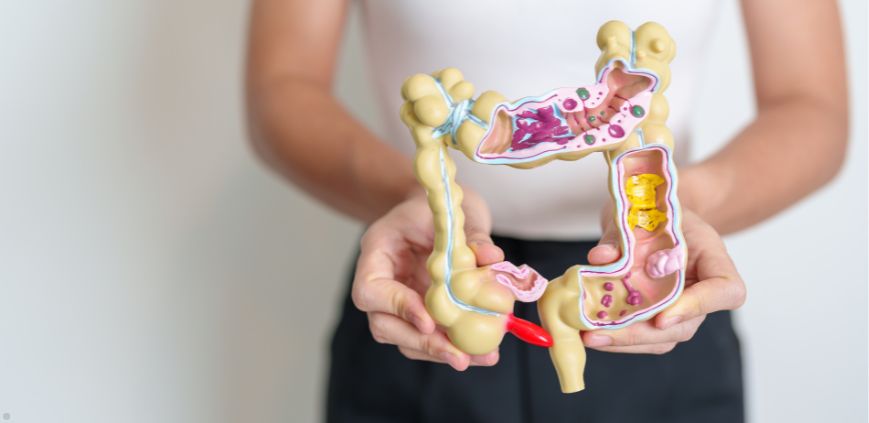Talk to Your Doctor About the Best Treatment Options
In this article, we’ll discuss the available treatments for ulcerative colitis (UC), starting with Hyrimoz, a biosimilar medication that offers effective management for this condition.
1. Hyrimoz (Adalimumab Biosimilar)
Hyrimoz is a biosimilar to adalimumab, a biologic therapy used to treat moderate to severe UC. It works by targeting and neutralizing tumor necrosis factor-alpha (TNF-α), a protein involved in inflammation. By reducing TNF-α levels, Hyrimoz helps control inflammation in the colon, alleviating symptoms and improving overall quality of life.
Key benefits of Hyrimoz include:
- Effectively induces and maintains remission in UC patients.
- Reduces the need for corticosteroids, minimizing long-term side effects.
- Administered via subcutaneous injection, offering convenience for patients.
Hyrimoz is particularly useful for patients who have not responded adequately to conventional treatments or other biologic therapies.
2. Aminosalicylates (5-ASA)
Aminosalicylates, such as mesalamine, sulfasalazine and olsalazine, are often the first-line treatment for mild to moderate UC. These medications work directly in the lining of the colon to reduce inflammation.
Common aminosalicylates include:
- Oral mesalamine. Targets inflammation throughout the colon.
- Rectal mesalamine (enemas or suppositories). Ideal for localized inflammation in the rectum and lower colon.
Aminosalicylates are generally well-tolerated, with side effects like headaches, nausea and abdominal pain occurring in some patients.
3. Corticosteroids
Corticosteroids, such as prednisone and budesonide, are used for short-term flare management in moderate to severe UC. These powerful anti-inflammatory drugs quickly reduce symptoms but are not suitable for long-term use due to potential side effects.
Benefits and risks of using corticosteroids include:
- Effective in controlling acute flare-ups.
- Prolonged use can lead to side effects like osteoporosis, weight gain and high blood pressure.
4. Immunomodulators
Immunomodulators, such as azathioprine, 6-mercaptopurine (6-MP) and methotrexate, are used to suppress the immune system’s response, reducing inflammation in the colon. They're suitable for patients who do not respond to or cannot tolerate other treatments.
However, using them requires regular blood tests to monitor for potential side effects, including liver toxicity and lowered white blood cell counts.
5. Biologic Therapies
In addition to Hyrimoz, other biologic medications target specific proteins involved in inflammation to treat moderate to severe UC.
Common biologics often include:
- Infliximab (Remicade). Administered intravenously and effective for severe cases.
- Vedolizumab (Entyvio). Specifically targets inflammation in the gut, reducing the risk of systemic side effects.
- Ustekinumab (Stelara). Effective for patients with UC and coexisting Crohn’s disease.
Biologics are particularly useful for patients who have not responded to other therapies or who experience frequent flare-ups.
6. Janus Kinase (JAK) Inhibitors
JAK inhibitors, such as tofacitinib (Xeljanz), are oral medications that block specific pathways involved in the immune response. They are used for moderate to severe UC when other treatments have failed.
Advantages of this type of treatment include:
- Rapid onset of action compared to biologics.
- Convenient oral administration.
Potential side effects include infections, blood clots and increased cholesterol levels, necessitating careful monitoring.
7. Surgery
For patients with severe UC who do not respond to medical treatments, surgery may be necessary. Surgical options typically involve removing the colon and rectum (proctocolectomy) and creating an ileal pouch or a permanent ostomy.
Surgery is recommended in the following situations:
- Severe complications, such as perforation or severe bleeding.
- Risk of colon cancer.
- Medication-resistant UC.
While surgery can cure UC by removing the affected tissues, it may lead to lifestyle adjustments, such as managing an ostomy.
8. Dietary and Lifestyle Management
While diet cannot cure UC, certain dietary changes can help manage symptoms and prevent flare-ups. A low-residue or low-fiber diet may reduce irritation during active flares. Long-term dietary recommendations include:
- Avoiding trigger foods like caffeine, alcohol and high-fat items.
- Maintaining hydration and electrolyte balance.
Lifestyle modifications, such as stress management, regular exercise and smoking cessation, can also positively impact UC management.
9. Complementary Therapies
Complementary therapies, such as probiotics, omega-3 fatty acids and acupuncture, may provide additional relief for some patients. However, these should be used alongside, not in place of, medical treatments.

